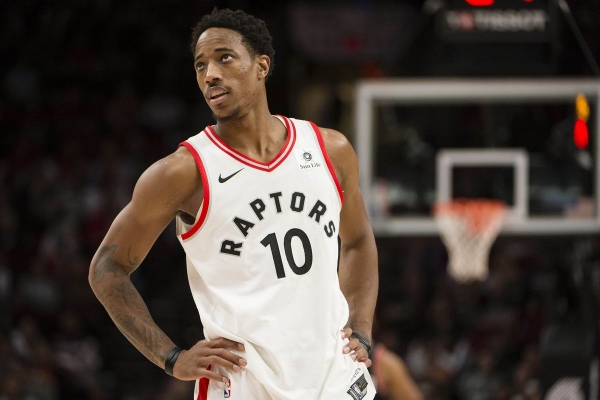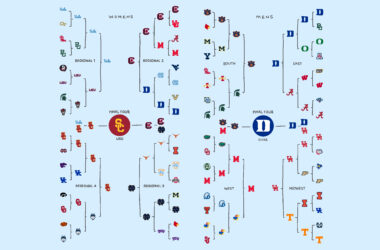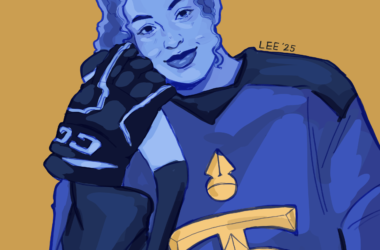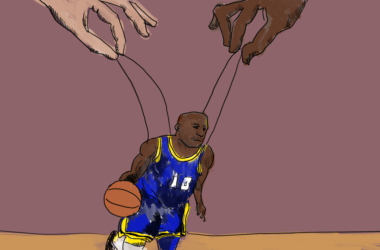Athletes do not often publicly expose their perceived weaknesses, physical or otherwise, for others to see. So when Toronto Raptors superstar shooting guard DeMar DeRozan tweeted about his struggle with depression during the NBA All-Star Weekend in February, his words sparked a difficult—and extraordinary—discussion. With that red-eye tweet during a weekend designed to celebrate the NBA’s finest, DeRozan unintentionally helped others to acknowledge their own struggles with mental health. In response to DeRozan’s statements, fellow All-Star Kevin Love composed a heartfelt essay outlining his own battles with mental health and anxiety.
“I knew on some level that some people benefited from asking for help or opening up,” Love wrote in The Players’ Tribune. “I just never thought it was for me. To me, it was form of weakness that could derail my success in sports or make me seem weird or different [….] Call it a stigma or call it fear or insecurity […] but what I was worried about wasn’t just my own inner struggles but how difficult it was to talk about them.”
Revelations regarding anxiety and depression from NBA players signify a greater point on how men address their bouts with mental health. Being “tough” and failing to confront one’s problems is a road that men, especially those who epitomize masculinity, continue to haphazardly trudge through.
In broad strokes, NBA stars are cartoonishly presented akin to superheroes. They are in peak physical condition, famous worldwide, and extravagantly wealthy. To some, these NBA players are role models. In a global sport where millions watch their every move, the NBA and its players are uniquely aware of their public perception in a way most other leagues and their athletes are not. LeBron James and Stephen Curry, the league’s two most widely recognized players, leverage their status to discuss social issues.
On the flip side, these NBA players are also perceived by the general public as the apex of what it means to be a man. Hyper-masculine attitudes persist in basketball and make it difficult for some to address “un-masculine” topics. Love compares learning how to be a man to mastering a playbook: “Be strong. Don’t talk about your feelings. Get through it on your own.”
Following that playbook, therefore, means being steadfast on the traits that make one manly: Always show strength. Weakness is the antithesis of what an NBA player is supposed to represent. Add the stigma surrounding mental health to these principles, and players are strongly dissuaded from confronting their battles.
DeRozan and Love, however, display another side to this coin. People make erroneous assumptions of the type of lives these figures lead without considering the notion that they, like everyone else, go through their own battles. No matter how much fame, fortune, or physical fitness a person may have, anyone can be predisposed to mental illness.
As the two stars point out, acknowledging one’s internal battles is not a sign of weakness, but of strength. Not feeling able to talk about mental health is the weakness in itself: It robs us the opportunity to reach out to those in need and robs others of the chance to support us.
“It’s not nothing I’m against or ashamed of,” DeRozan told the Toronto Star on Feb. 25. “At my age, I understand how many people go through it.”
Displaying one’s vulnerabilities is difficult, but the words Love and DeRozan imparted broke barriers that both their fellow players and our broader society can benefit from. Like any physical injury, psychological injuries can and should be mended. Seeing two incredibly accomplished athletes reveal their struggles allows those who look up to them to face mental issues in their own lives. The two essentially implore their fans to challenge the status quo and question the notion that men can’t talk about their feelings or ask for help. Though the players provided the assist, it rests on everyone’s shoulders to carry the conversation.










—-Call it a “stigma” or call it fear or insecurity
No thank you, that I will not do, I lived through Jew stigma , WW II.
No thank you, that I will not do, I lived through rape stigma and the harm it caused.
You correct people who direct that prejudice, you do not join them.
Be cautious of the words you choose to repeat